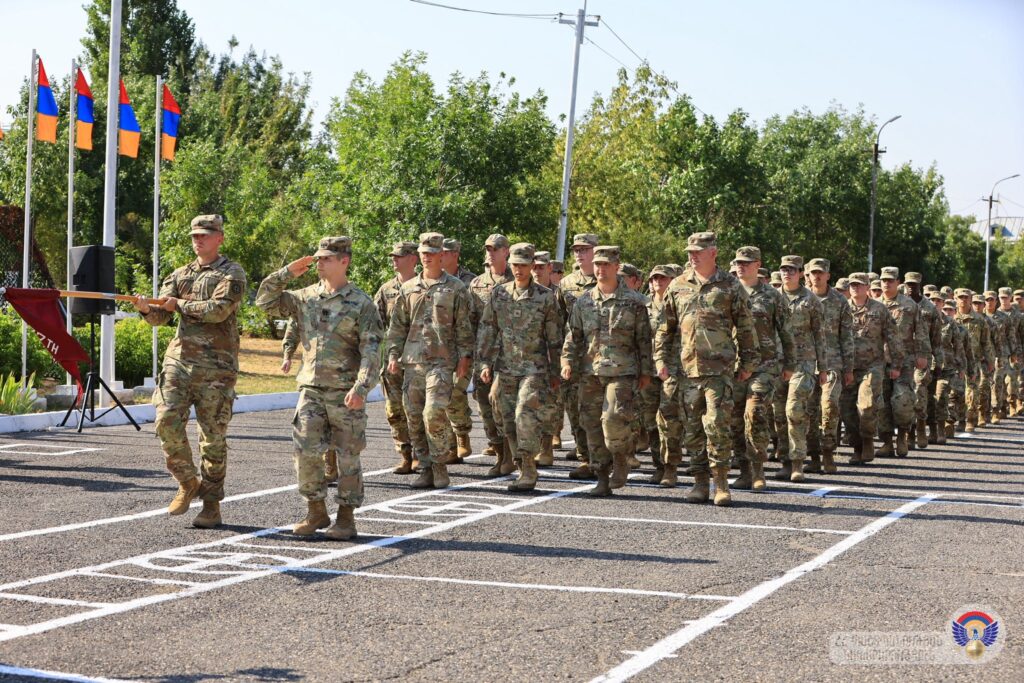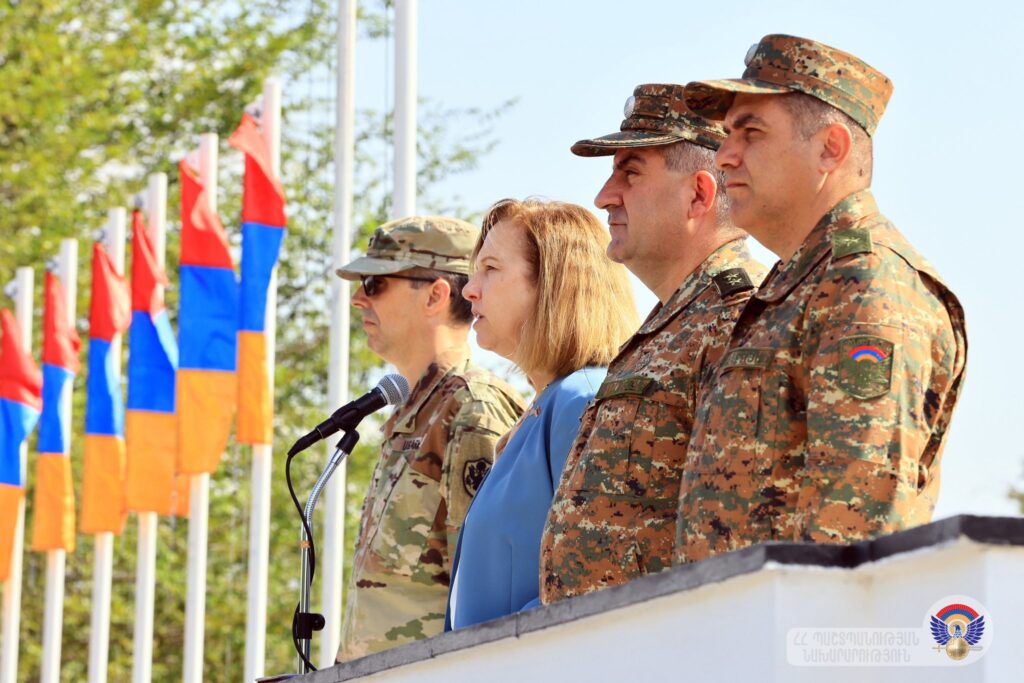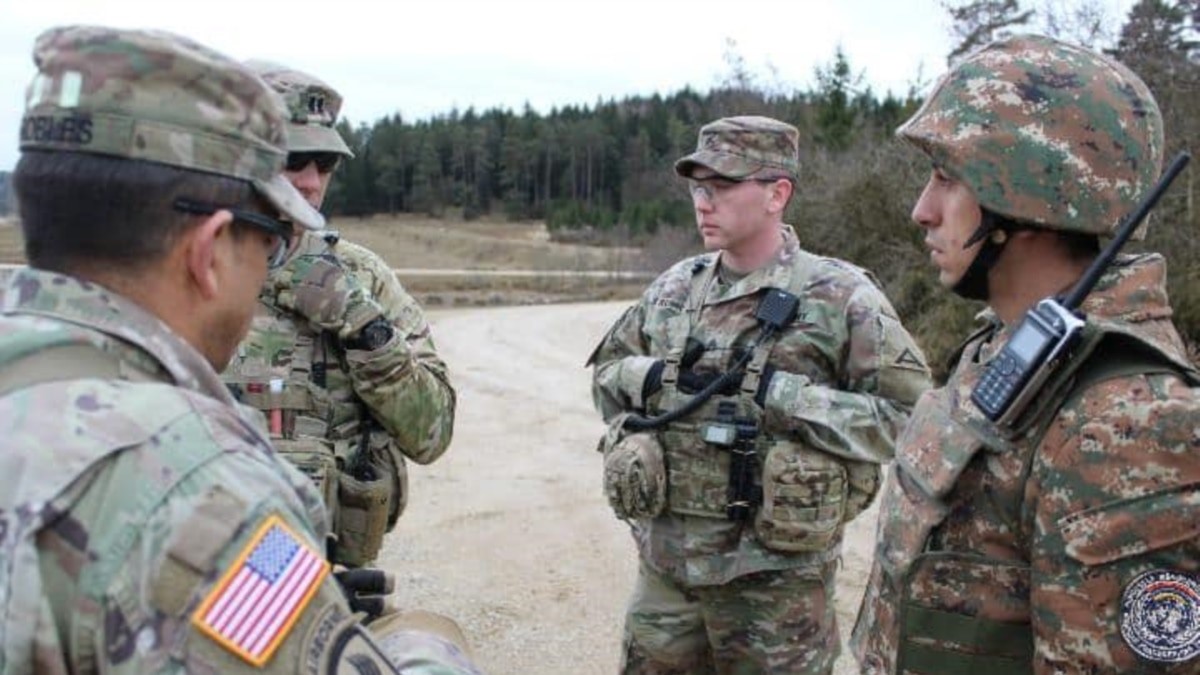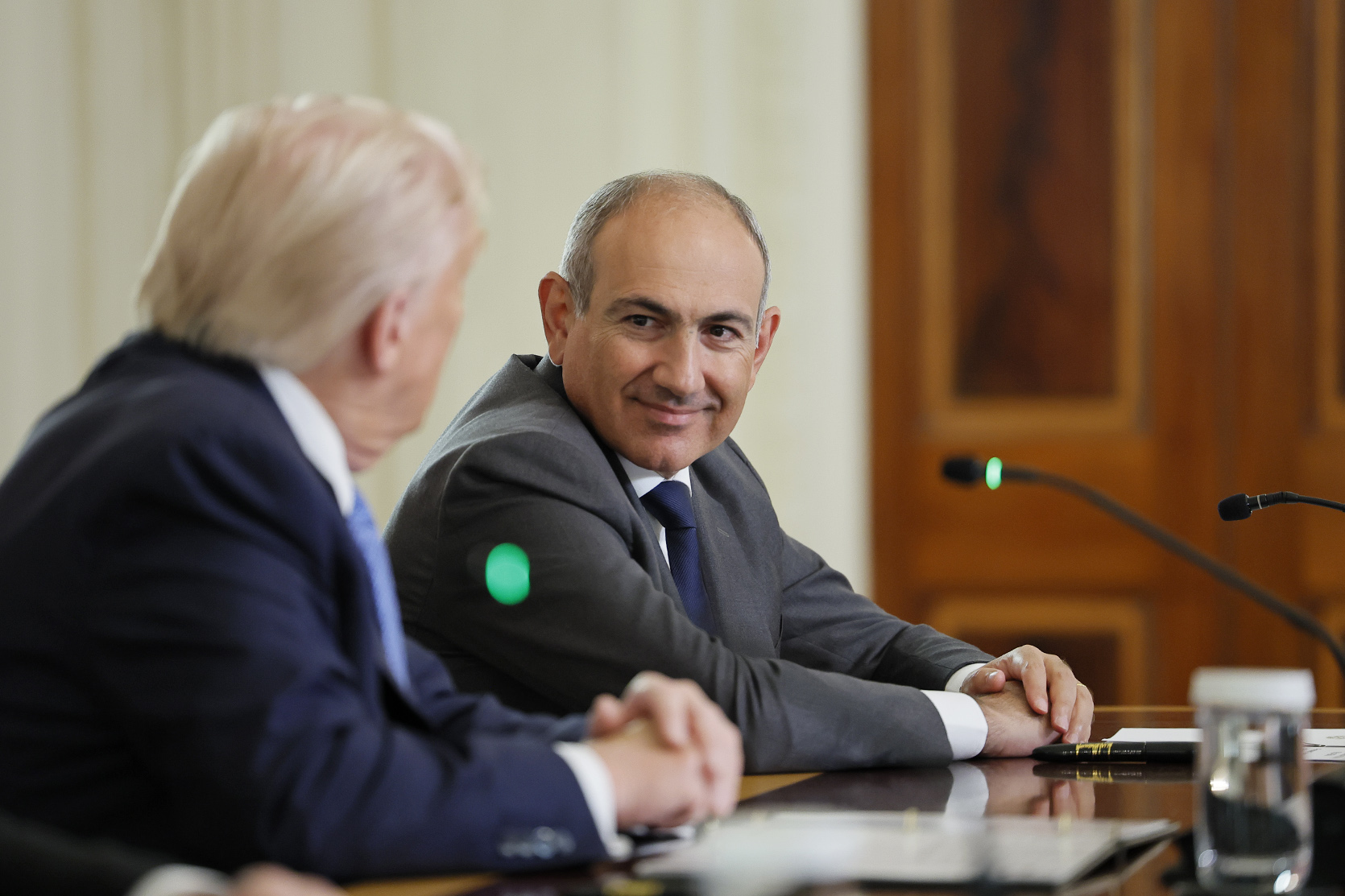“Armenia–US drills are more political than defensive,” says analyst
Eagle Partner 2025 military drills in Armenia
Joint Armenia–US military drills, codenamed Eagle Partner, have begun in Armenia and will run until 20 August. Held annually since 2023, the exercises focus on preparing participants for peacekeeping missions. This year, special attention will be given to medical evacuation.
Political analyst Beniamin Poghosyan does not believe the drills will play a decisive role in Armenia’s defence system.
“We are talking about peacekeeping operations, about a peacekeeping brigade. I would say these exercises have more political than defensive significance – in terms of hard power. But they do show that Armenia–US defence cooperation, which did not start today and has a long history, has intensified in recent years,” he said.

- ‘Historic summit’: Armenia and Azerbaijan sign documents with Trump’s mediation
- US links Abraham Accords to Armenia-Azerbaijan peace process: What’s behind the move?
- “Military exercises with the USA contribute to enhancing Armenia’s sovereignty.” Opinion
- Armenian-American military exercises: Russia’s reaction and response from Armenia
Participants and objectives
According to the defense ministry, Eagle Partner 2025 involves personnel from Armenia’s peacekeeping brigade, the US Army Europe and Africa, and the Kansas National Guard.

Objectives of the drills:
- improve coordination between units taking part in international peacekeeping missions
- share experience in command and tactical communication
- enhance the readiness of Armenia’s peacekeeping unit
Comment
According to political analyst Beniamin Poghosyan, similar drills have been held in Armenia for the past three years. However, he does not rule out that this year’s format could lead to a broader range of training for servicemen in the future.
“Whether this could become the basis for larger-scale exercises in the future, or drills involving not only members of the peacekeeping brigade, is hard to say. But it is clear that Armenia–US defence cooperation is continuing – and its continuation at least leaves open the possibility of expansion,” he said.
The analyst noted that the first Armenia–US exercises in Yerevan were held after the Armenian government decided not to take part in drills of the CSTO military bloc, which operates under Russia’s aegis. Since then, Moscow has consistently criticised Armenia–US exercises, with Russian politicians claiming that through them, the US is imposing NATO standards on Armenia. This year, the Kremlin has yet to comment on Eagle Partner.
Armenia has long ceased participating in CSTO activities, with the authorities accusing their bloc allies of failing to meet their obligations. They say the CSTO did not ensure Armenia’s border security, in breach of commitments under the organisation’s charter, referring to events in 2021–2022 when Armenian forces requested help over an incursion by Azerbaijan’s military into its sovereign territory. CSTO members declined, arguing that Armenia’s border with Azerbaijan was not yet delimited.
Prime minister Nikol Pashinyan said: “Saying there is no border between Armenia and Azerbaijan means claiming there is no area of responsibility for the Collective Security Treaty Organization. And if there is no area of responsibility, there is no organisation.” Armenia has since frozen its CSTO membership, and in his most recent press conference, Pashinyan said the country is more likely to leave the bloc than to unfreeze its participation.
Beniamin Poghosyan believes the Kremlin will not take harsh measures against Armenia unless it crosses three “red lines”:
“The first red line is the operation of the Russian military base in Armenia [the 102nd base is stationed in Gyumri], which under the agreement is to remain until 2044. The second red line is membership in the Eurasian Economic Union [also operating under Russia’s aegis]. The third red line is a de jure withdrawal from the CSTO.”
Regarding the West’s position on Armenia’s CSTO membership, Poghosyan noted that France and the United States under the Biden administration signalled to Armenia’s leadership that freezing its membership was the right move. However, they advised against rushing a de jure withdrawal. Therefore, he does not believe Armenia’s formal membership in the CSTO is an obstacle to cooperation with the West.
He cited the example of Armenia–France defence cooperation, which has been expanding in weapons supplies and training:
“We have never received any indication from France that de jure CSTO membership hinders cooperation. There have been no statements suggesting they would sell more weapons if Armenia were not a member. At least, I have never heard anything like that.”
According to Poghosyan, the same applies to Armenia–US defence cooperation — formal CSTO membership is not a barrier. However, it could limit the transfer of advanced technologies:
“In the US, there is a clear division regarding which groups of states can be supplied with certain advanced technologies. I do not rule out that as long as Armenia remains a de jure CSTO member, there may be problems related to the export of specific technologies.”




















